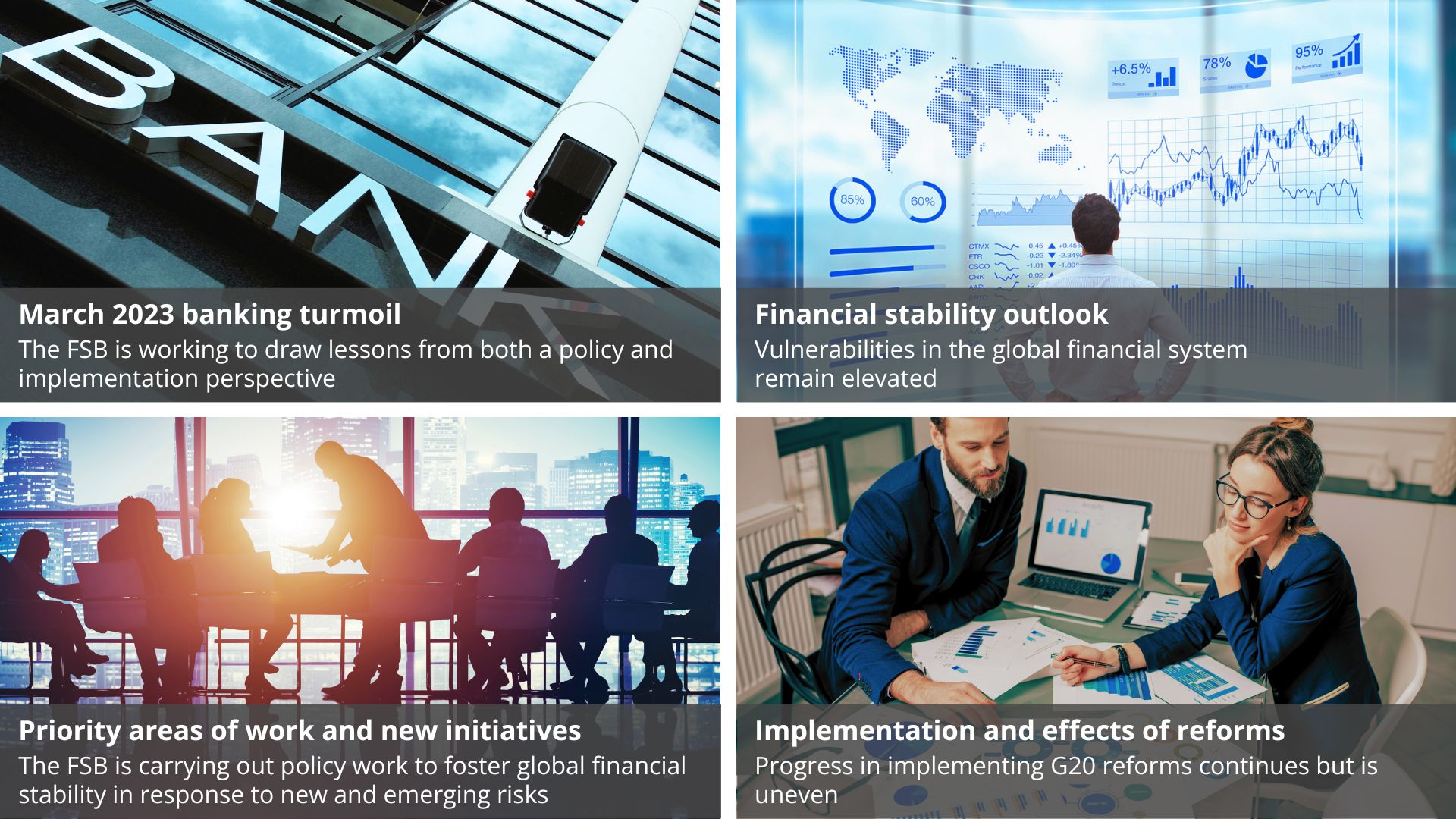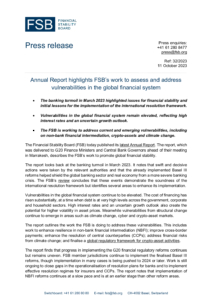The banking turmoil in March 2023 highlighted issues for financial stability and provides initial lessons for the design and implementation of the G20 reforms. Vulnerabilities in the global financial system continue to be elevated, reflecting high interest rates and an uncertain growth outlook, while vulnerabilities from structural change continue to emerge in areas such as climate change, cyber and crypto-asset markets.
This annual report provides an overview of the FSB’s work to assess and address current and emerging vulnerabilities including:
-
The finalisation of a global regulatory framework for crypto-assets, including stablecoins
-
Work to address systemic risk in non-bank financial intermediation
-
The development of a global standard for financial resources and tools to support resolution of systemically important central counterparties
-
Work under the FSB Roadmap for Addressing Climate-related Financial Risks, including promotion of the timely and wide use of global sustainability disclosure standards
-
Work to achieve greater convergence in cyber incident reporting and the development of a policy toolkit for authorities, financial institutions and service providers for their third-party risk management and oversight
-
Work to enhance cross-border payments through practical projects, including strengthened partnerships with the private sector.
The report finds that progress in implementing the G20 reforms continues but remains uneven. It emphasises that developments over the past year reinforce the importance of global regulatory cooperation, including the completion of the post-crisis reform agenda with G20 support. The FSB and standard-setting bodies will continue to promote approaches to deepen international cooperation, coordination and information sharing.

